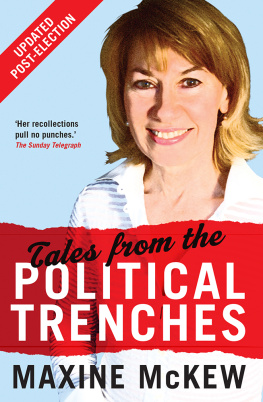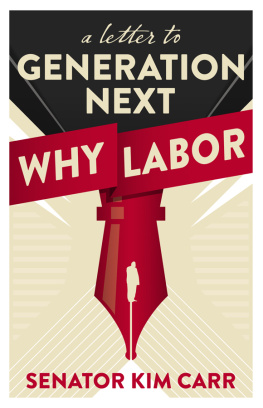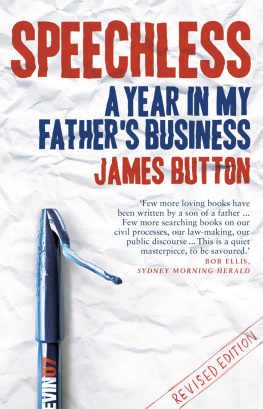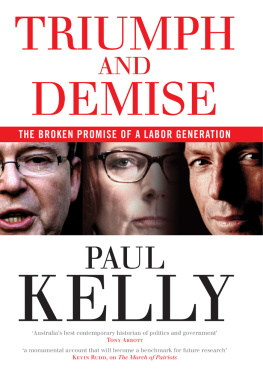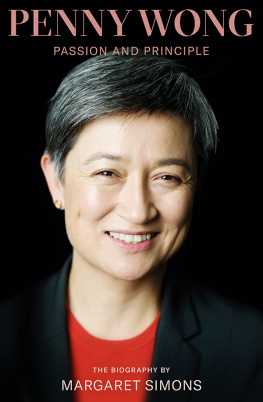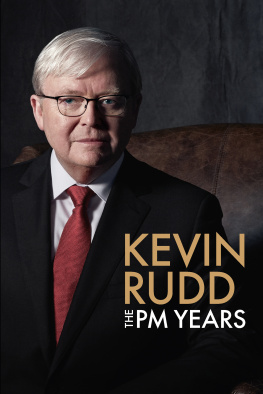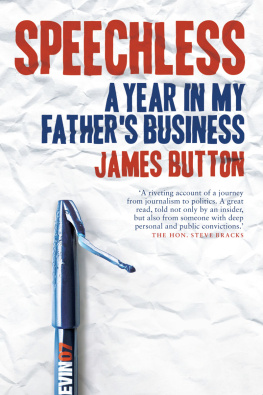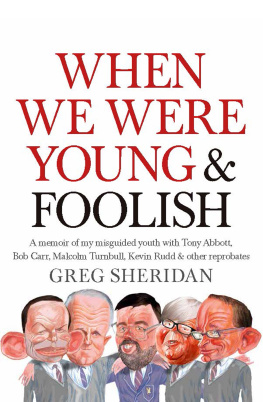Maxine McKew is a Vice Chancellors Fellow at the University of Melbourne. She also works as an advisor on education to the not-for-profit group Social Ventures Australia and is a member of the board of Per Capita.
At the 2007 federal election Maxine McKew wrote herself into Australian political history as only the second candidate ever to beat a prime minister in his own seat. She was immediately elevated to the executive and served as Parliamentary Secretary for Early Childhood, and later as Parliamentary Secretary for Infrastructure and Regional Development.
Before making the switch to politics, Maxine had a thirtyyear career as a broadcast and print journalist. As host of Lateline and part-time anchor of 7.30 Report she earned a reputation as one of the countrys most authoritative interviewers. Her television reporting has been recognised by her peers with both Logie and Walkley awards for broadcast excellence, while her work for The Bulletin saw her secure the Magazine Publishers Award for Columnist of the Year.
A sought-after speaker and facilitator, Maxine is represented by Claxton Communications and is involved in a range of voluntary activities.

MELBOURNE UNIVERSITY PRESS
An imprint of Melbourne University Publishing Limited
Level 1, 1115 Argyle Place South, Carlton, Victoria 3053, Australia
mup-info@unimelb.edu.au www.mup.com.au
First published 2012
Reprinted three times, 2012
Reprinted 2013
This edition published 2013
Text Maxine McKew, 2013
Design and typography Melbourne University Publishing Limited, 2012
This book is copyright. Apart from any use permitted under the Copyright Act 1968 and subsequent amendments, no part may be reproduced, stored in a retrieval system or transmitted by any means or process whatsoever without the prior written permission of the publishers.
Every attempt has been made to locate the copyright holders for material quoted in this book. Any person or organisation that may have been overlooked or misattributed may contact the publisher.
Cover design by Philip Campbell Design
Typeset in Bembo 12.5/15.5pt by Cannon Typesetting
Printed in Australia by McPhersons Printing Group
National Library of Australia Cataloguing-in-Publication entry
McKew, Maxine.
Tales from the political trenches / Maxine McKew.
9780522864267 (pbk.)
9780522866124 (ebook)
McKew, Maxine.
Australian Labor PartyBiography.
Women politiciansAustraliaBiography.
PoliticiansAustraliaBiography.
WomenPolitical activityAustralia.
JournalistsAustraliaBiography.
Women journalistsAustraliaBiography.
AustraliaPolitics and governmentBiography.
324.2092
This project has been assisted by the Australian Government through the Australia Council, its principal arts funding and advisory body.
CONTENTS
ACKNOWLEDGMENTS
I WOULD LIKE to thank the following people for their assistance and wisdom: Trish Drum, Erin Dale, Sue Pike, Trish Hurley, Lucienne Joy and Kathleen OHare. Thanks as well to Max Walsh and Tom Hogg for helping me with specialist advice. To the wonderful team at Melbourne University PublishingLouise Adler, Sally Heath, Cathy Smith, Terri King and Anouska Jonesyou have my deep gratitude for your belief in and patience with a first-time author. Thanks as well to Don Watson for constant encouragement and help, and for teaching me the power of a short sentence. To the many ministers, MPs, public servants and staffers, I thank you for your time and candour. I am also particularly grateful to Professor Glyn Davis, Vice-Chancellor at the University of Melbourne, for the provision of a fellowship that allowed me the time and space to write this book. And finally, to my partner Bob, I hope you think this book captures the mad, the bad and the glorious.
Chapter 1 ITS A CONTEST
OF IDEAS
P AUL HERE , M AXINE . Paul Keating.
Well of course it is. There is no mistaking the voice. Its low, distinctive and full of either threat or promise. Sometimes both. He is calling, as many are, to be part of the thrill of it, and to acknowledge the sheer chutzpah of what turned out to be one of the most audacious of political campaigns: the successful quest to unseat John Howard in his own seat of Bennelong.
Well done, love. Youve sent the little fella packing.
Keating had followed the 2007 campaign for months and with growing conviction that Kevin Rudd would triumph over his old rival. But Bennelong? Could the Prime Minister, John Howard, be cut down in his own constituency, an area that had kept returning him to office for thirty-three years?
Thats exactly what happened. And when the end came, it was an unsentimental despatch. The attitude seemed to be enjoy your retirement. John Howards parliamentary career ended when the final two-party preferred vote came in at 51.448.6 in my favour.
For those of us on the Labor side, in those blissful days straight after the election, everything seemed so clear and straightforward. Howard was history and, as members of Kevin Rudds new Labor government, we were all set to go for it. We would re-fashion the country. End the culture wars. No more them and us politics. No more Indian doctors like Mohamed Haneef being locked up because of dodgy AFP work. We would build the future, and redefine the light on the hill for a new generation of activists. Creative. Challenging. Positive. Thats what I wanted from the new Labor government. Thats why I went out and beat Howard.
Far from being cynical about politics, I thought it a grand undertaking. That sentiment was in large part fired by politicians like Keating.
As a younger journalist, fresh from a posting in North America and newly installed as a member of the Canberra press gallery, I was in the room at the National Press Club on the night of 7 December 1990 when Paul Keating delivered his famous Placido Domingo speech. I barely remember the references to the Spanish tenor but the brilliance of the speech was in the generational call to arms. Keating, at that stage still thwarted in his ambition to take over from Bob Hawke as Prime Minister, did something that few ever attempt. He told us why politics matters. He talked about leadership and why it matters. Politicians change the world . Thats what Paul Keating said that night in what was both a homage to the imagination and fighting spirit of the American presidential greats in willing their nation into being and a rebuke to the mediocrity of much of Australian leadership. As a job application it was in a class of its own. It was equal parts offensive and thrilling.
What I remember most vividly from that night was the final exhortation.
There are two types in this worldvoyeurs and players. Keating paused and I swear he looked straight at me as he issued his challenge. And who wants to be a voyeur?
Ive never forgotten it. I took a long time to make the switch to politics from journalism but by 2007 Id had enough of asking questions. I had the awards, the kudos, a lot of editorial autonomy, an action-packed CV and more invitations than I could accept. Life was good. Life was too easy. It was certainly too easy playing that familiar party animal, the dinnertime political critic. Although in my household, and with my circle of friendsmany of them journalists and political operativesit was more a case of being the breakfast, lunch and dinner critic.

